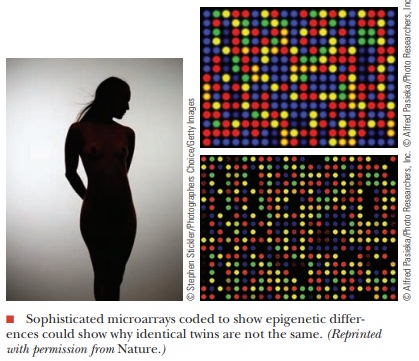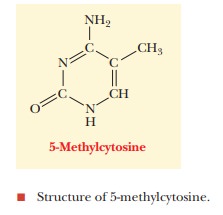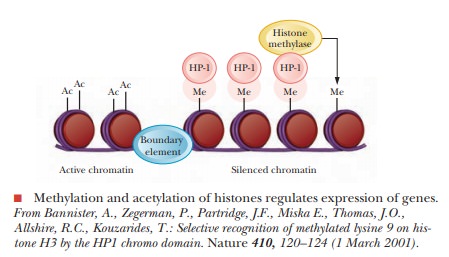Chapter: Biochemistry: Nucleic Acids: How Structure Conveys Information
Why Identical Twins Are Not Identical
Why Identical Twins Are Not
Identical
A lot
has been learned about the differences between nature and nurture by studying
twins. Often twins separated at birth are later studied to see how different
they have become. Their differences and similarities give us insight into how
much of our physiology and our behavior is governed by genetics. Sometimes,
however, twins raised together under seemingly identical circumstances can turn
out very different. While the actual DNA sequence of identical twins is the
same, two twins can be very different in other ways. The study of epigenetics is an active area of
research. Epigenetics refers to changes in DNA that are not reflected in the
actual base sequence. Epigenetic modifications of DNA act like switches that
turn on or off certain genes. If these modifications are not the same in each of
two twins, then the twins will no longer be identical.

The best known example of an epigenetic mechanism is DNA methylation, where a cytosine is tagged with a methyl group, as shown in the figure. This is usually associated with shutting off the expression of the gene.

Another epigenetic mechanism is chro-matin remodeling. The histone
proteins discussed can be modified by the addition of methyl, acetyl, or
phosphate groups. This, in turn, influences the activity of adjacent genes.
Acetylation generally switches on the expression of the genes, while
methylation usually silences the expression, as shown in the figure.
Because
certain disease states can be linked to epigenetic states, it is possible for
one individual to develop a disease while his or her identical twin does not.
Susceptibility to diseases is often a family trait, but the actual mechanism of
getting the dis-ease may require epigenetic changes in the
DNA of a
cell. Epigenetic changes are
known to be important in the field of cancer research, but only recently have scientists
begun to study the
relationship between epigenetic
state and other diseases, such as schizophrenia, immune defi- ciencies,
obesity, diabetes, and heart disease.

Related Topics